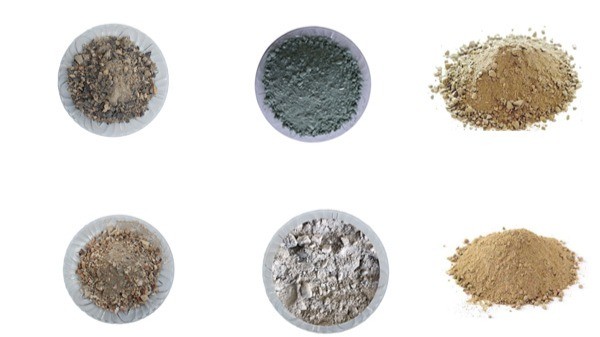What are the raw materials for refractory?
Nov 06, 2024Refractory castables are essential for industries requiring high-temperature materials that can withstand extreme heat, corrosion, and mechanical stress. These versatile materials find extensive use in furnaces, kilns, incinerators, and other applications where durable, heat-resistant materials are critical. But what exactly are the raw materials that go into creating refractory castables? This article explores the components, functions, and benefits of the raw materials used in refractory castables, emphasizing how each element contributes to the castable’s performance.
Refractory castables are a type of unshaped refractory material. Unlike traditional bricks, castables are made from fine raw materials that can be molded and cast in various forms and shapes, making them suitable for complex and customized applications. Their components are carefully selected to enhance thermal resistance, mechanical strength, and resistance to corrosion and wear, catering to high-demand applications in heavy industries.
The performance of refractory castables is primarily determined by their raw materials, each playing a unique role:
Alumina: A key ingredient in high-alumina refractory castables, alumina (Al₂O₃) enhances the material’s thermal stability and strength. Alumina-based castables are highly resistant to thermal shock, which makes them ideal for environments where rapid temperature changes occur.
Silica: Silica (SiO₂) is another core component, offering heat resistance and strength to withstand high temperatures. Silica-based refractories are widely used in iron and steel industries and provide reliable performance in various types of kilns and furnaces.
Magnesia: Known for its high melting point and basic refractory properties, magnesia (MgO) adds significant resistance to corrosion and chemical attack, particularly in environments exposed to acidic and alkaline substances. Magnesia-based castables are commonly used in cement kilns and steel ladles.
Calcium Aluminate Cement: Often acting as a binder, calcium aluminate cement contributes to the setting and hardening properties of the castable. It ensures the castable retains its shape after installation and adds initial mechanical strength.
Bauxite and Mullite: Bauxite, a high-alumina mineral, and mullite, a crystalline mineral, are added to castables to improve thermal shock resistance and strength. Mullite is particularly valued for its low thermal expansion and high melting point, making it a stable material for extreme temperatures.
Additives and Fillers: Various fillers and additives such as microsilica and stainless steel fibers may be added to adjust the castable’s properties. Microsilica improves workability, reduces porosity, and enhances strength, while stainless steel fibers add mechanical reinforcement.
The combination of these raw materials gives refractory castables several key properties:
Thermal Resistance: Designed to endure extreme temperatures, castables with high alumina or silica content can withstand temperatures well above 1,500°C, making them suitable for use in industrial furnaces and kilns.
Mechanical Strength: The inclusion of calcium aluminate cement and stainless steel fibers enhances the castable’s mechanical stability, ensuring it can withstand heavy loads and abrasive environments.
Chemical Resistance: High-magnesia and alumina castables offer excellent resistance to corrosion and chemical attacks, particularly in environments exposed to slags, alkalis, and acids.
Thermal Shock Resistance: Minerals like mullite contribute to thermal shock resistance, allowing castables to endure sudden temperature changes without cracking or structural compromise.
Thanks to their superior properties, refractory castables are used in a variety of industrial applications:
Steel and Iron Industry: Castables are often applied in blast furnaces, ladles, and tundishes, where high mechanical strength and thermal shock resistance are essential.
Cement Production: In cement kilns, where both heat resistance and chemical resistance are needed, refractory castables provide durable linings to enhance operational efficiency and longevity.
Glass Manufacturing: Castables are used in glass melting furnaces due to their low porosity and ability to withstand high temperatures without contaminating the glass.
Chemical and Petrochemical Industries: Refractory castables are also used to line reactors and process vessels in chemical industries, where they provide resistance to corrosive substances and high temperatures.
At DYSen Industrial, we offer a range of high-quality refractory castables tailored to meet the demanding needs of heavy industrial applications. Our castables are formulated with premium raw materials to ensure reliability and durability under extreme conditions. Whether you need materials for steel production, glass melting, or chemical processing, DYSen Industrial provides solutions that enhance efficiency, reduce downtime, and improve the safety and performance of your operations.

The raw materials in refractory castables, from alumina and silica to magnesia and calcium aluminate cement, are carefully selected to deliver a balance of thermal resistance, mechanical strength, and chemical stability. For any industry that relies on high-temperature processes, understanding the components and properties of refractory castables is essential for optimizing performance and longevity. DYSen Industrial offers a wide range of customizable refractory solutions to meet your unique requirements and ensure your equipment performs at its best.